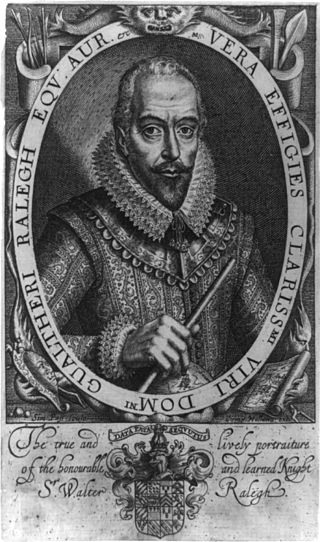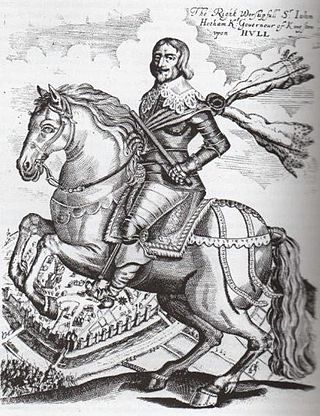
The Lord Steward or Lord Steward of the Household is an official of the Royal Household in England. Holders of the office are always peers, until 1924, were always members of the Government, and until 1782, the office was one of considerable political importance and carried Cabinet rank.

Earl of Mount Edgcumbe is a title in the Peerage of Great Britain. It was created in 1789 for George Edgcumbe, 3rd Baron Edgcumbe. This branch of the Edgcumbe family descends from Sir Piers Edgcumbe of Cotehele in Cornwall, who acquired an estate near Plymouth through marriage in the early 16th century, which was later re-named "Mount Edgcumbe". His descendant Richard Edgcumbe was a prominent politician and served as Paymaster-General of Ireland and as Chancellor of the Duchy of Lancaster. In 1742, he was created Baron Edgcumbe, of Mount Edgcumbe in the County of Devon, in the Peerage of Great Britain. Richard Edgcumbe was succeeded by his eldest son, the second Baron. He represented Plympton Erle, Lostwithiel and Penrhyn in the House of Commons and served as Lord-Lieutenant of Cornwall. On his death, the title passed to his younger brother, the third Baron. He was an Admiral of the Blue and also held political office as Treasurer of the Household and as Captain of the Honourable Band of Gentlemen Pensioners. In 1781, he was created Viscount Mount Edgcumbe and Valletort and in 1789 he was further honoured when he was made Earl of Mount Edgcumbe. Both titles are in the Peerage of Great Britain.
The Comptroller of the Household is an ancient position in the British royal household, nominally the second-ranking member of the Lord Steward's department after the Treasurer of the Household. The Comptroller was an ex officio member of the Board of Green Cloth, until that body was abolished in the reform of local government licensing in 2004. In recent times, a senior government whip has invariably occupied the office. On state occasions the Comptroller carries a white staff of office, as often seen in portraits.

The Lord Warden of the Stannaries used to exercise judicial and military functions in Cornwall, England, UK, and is still the official who, upon the commission of the monarch or Duke of Cornwall for the time being, has the function of calling a stannary parliament of tinners. The last such parliament sat in 1753.
This is a list of people who have served as Lord Lieutenant of Cornwall. Since 1742, all the Lords Lieutenant have also been Custos Rotulorum of Cornwall.
Sheriffs and high sheriffs of Cornwall: a chronological list:

The Sheriff is the oldest secular office under the Crown. Formerly the Sheriff was the principal law enforcement officer in the county but over the centuries most of the responsibilities associated with the post have been transferred elsewhere or are now defunct, so that its functions are now largely ceremonial.
The office of High Sheriff of Somerset is an ancient shrievalty which has been in existence since the 11th century. Originally known as the "Sheriff of Somerset", the role was retitled on 1 April 1974, under the provisions of the Local Government Act 1972.
The High Sheriff of Devon is the Kings's representative for the County of Devon, a territory known as his/her bailiwick. Selected from three nominated people, they hold the office for one year. They have judicial, ceremonial and administrative functions and execute High Court Writs. The title was historically "Sheriff of Devon", but changed in 1974 to "High Sheriff of Devon".
The High Sheriff of Essex was an ancient sheriff title originating in the time of the Angles, not long after the invasion of the Kingdom of England, which was in existence for around a thousand years. On 1 April 1974, under the provisions of the Local Government Act 1972, the title of Sheriff of Essex was retitled High Sheriff of Essex. The high shrievalties are the oldest secular titles under the Crown in England and Wales, their purpose being to represent the monarch at a local level, historically in the shires.

This is a list of the sheriffs and high sheriffs of Wiltshire.
The Lord High Treasurer of Ireland was the head of the Exchequer of Ireland, and chief financial officer of the Kingdom of Ireland. The designation High was added in 1695.
The High Sheriff of Carlow was the British Crown's judicial representative in County Carlow, Ireland from the 14th century until 1922, when the office was abolished in the new Free State and replaced by the office of Carlow County Sheriff. The sheriff had judicial, electoral, ceremonial and administrative functions and executed High Court Writs. In 1908, an Order in Council made the Lord-Lieutenant the Sovereign's prime representative in a county and reduced the High Sheriff's precedence. However, the sheriff retained his responsibilities for the preservation of law and order in the county. The usual procedure for appointing the sheriff from 1660 onwards was that three persons were nominated at the beginning of each year from the county and the Lord Lieutenant then appointed his choice as High Sheriff for the remainder of the year. Often the other nominees were appointed as under-sheriffs. Sometimes a sheriff did not fulfil his entire term through death or other event and another sheriff was then appointed for the remainder of the year. The dates given hereunder are the dates of appointment. All addresses are in County Carlow unless stated otherwise.
The High Sheriff of Roscommon was the British Crown's judicial representative in County Roscommon, Ireland from 1575 until 1922, when the office was abolished in the new Free State and replaced by the office of Roscommon County Sheriff. The sheriff had judicial, electoral, ceremonial and administrative functions and executed High Court Writs. In 1908, an Order in Council made the Lord-Lieutenant the Sovereign's prime representative in a county and reduced the High Sheriff's precedence. However the sheriff retained his responsibilities for the preservation of law and order in the county. The usual procedure for appointing the sheriff from 1660 onwards was that three persons were nominated at the beginning of each year from the county and the Lord Lieutenant then appointed his choice as High Sheriff for the remainder of the year. Often the other nominees were appointed as under-sheriffs. Sometimes a sheriff did not fulfil his entire term through death or other event and another sheriff was then appointed for the remainder of the year. The dates given hereunder are the dates of appointment. All addresses are in County Roscommon unless stated otherwise.




